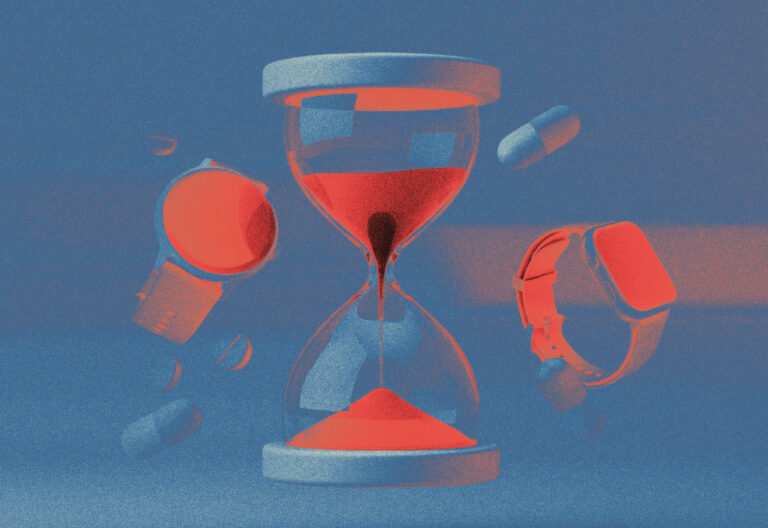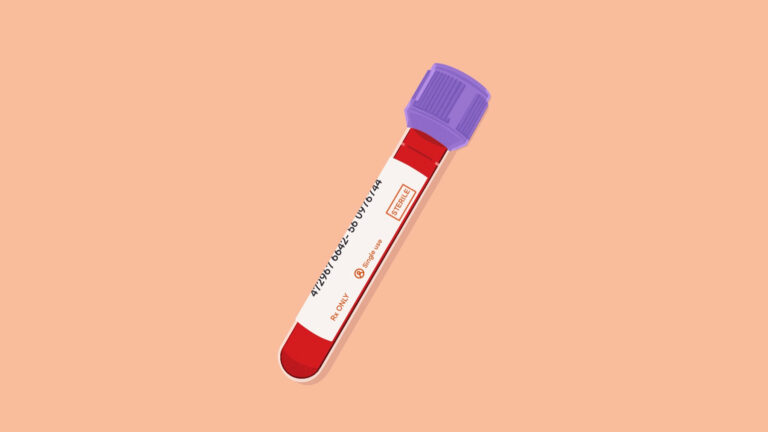Forget counting birthdays; experts say biology is the real determinant of age.
Forever Young
Instead of treating cancer or heart disease, longevity scientists want to cure aging.
- The effort to “delay human death” will be worth $600B by 2025, per BoA.
- A slowdown in aging that boosts life expectancy by one year is worth $38T economically.
Growing old, they insist, isn’t inevitable. In fact, there’s emerging evidence—in animal studies, at least—that we may be able to slow or reverse age-related decline.
Adding to the optimism, billionaires like Peter Thiel, Jeff Bezos, and Brian Armstrong are funding ambitious efforts to stave off death.
While the pursuits vary widely, from extending healthspan to living forever, a series of hurdles have slowed progress.
For starters, the FDA doesn’t recognize aging as a disease, meaning there’s no path forward for potential treatment. Plus, human lifespan trials are time- and cost-prohibitive.
Not deterred, the search for the fountain of youth continues.
Clocking In
To better understand aging, scientists are attempting to quantify it.
Among the more promising methods, UCLA professor Dr. Steve Horvath is credited with inventing a protocol to detect aging in human cells, tissues, and organs.
While chronological age denotes the passage of time, Horvath’s test—known as an epigenetic clock—is used to calculate biological age, the measure of how aging affects the body.
A foundational tool for the longevity field, identifying accurate biomarkers of aging enables new feedback loops:
- Track cellular aging to reveal the root cause(s)
- Quantify the impact of lifestyle behaviors to slow aging
- Accelerate drug development by quickly testing new therapies
Further, many experts (including Horvath) believe that epigenetic tests will lead to breakthroughs in personalized medicine and anti-aging drugs.
Doubling down, Horvath has taken his talents to Bezos-backed longevity startup Altos Labs in hopes of reversing aging. Meanwhile, his research has spawned a burgeoning industry.
Keeping Time
Last week, serial tech entrepreneur Bryan Johnson found himself at the center of a social media firestorm.
After selling his company Braintree to PayPal for $800M, Johnson has spent millions of dollars to hack his health. That effort, known as Project Blueprint, garnered a lot of attention thanks to a viral Twitter thread.
To sum up the debate, by following a strict diet and workout regimen, Johnson says he reduced his biological age by 5.1 years in seven months.
Interestingly, UFC President Dana White made headlines recently after revealing that a doctor said he had 10.4 years to live:
“They do these tests on you and they know when you’re gonna die. And they’re right within a month.”
Both Johnson and White are referring to epigenetic tests, like Horvath’s clock. Per Johnson’s website, he uses a $500 TruDiagnostic test, while White went through Grant Cardone-owned 10X Health.
Elsewhere, companies like Elysium Health, MyDNAge, GlycanAge, iAge, and others offer biological age assessments. Targeting the same space, Harvard professor and entrepreneur David Sinclair is set to debut Tally Health, while InsideTracker recently raised $15M to lengthen healthspan.
The catch? None of these tests are approved by the FDA. And they can’t pinpoint when you’ll die, either.
According to Horvath, while researchers work to vet more accurate tests, “these clocks are not useful for the average person…” and consumers should “think of it more as entertainment.”
Looking ahead: While epigenetic tests await further validation, they’ll find acceptance in a sea of wellness products. Soon though, like wearables and DIY diagnostics before them, they could become another metric for quantifying health — helping people take an active role in managing their well-being.
💍 Oura’s new CEO plots the smart ring’s role in healthcare and beyond
As the market for health-tracking wearables surges, the smart ring wars are getting heated.
On the Fitt Insider Podcast: Oura CEO Tom Hale discusses taking the reins of the biometric ring maker’s 1M-strong subscription business.
We also cover: Oura’s next generation and how wearables are transforming healthcare.
Listen to today’s episode here
🏥 Spotify CEO Daniel Ek readies tech-enabled primary care clinic
What it is: Known as Atrium, the stealth healthtech startup is focused on preventative care and noninvasive diagnostics.
Based in Stockholm, Sweden, the company’s clinic will reportedly offer whole-body screenings and personalized care plans. It could also sell its tech to healthcare providers.
According to Sifted (paywall), who broke the news, Ek invested ~$6M so far but has never discussed the project.
Big bets. While details are sparse, Ek has publicly committed to putting $1B of his own money into European startups — and healthcare is a prime target.
That’s also true in the US, where companies are lining up to reimagine the doctor’s office.
- Forward raised $225M last year for its productized healthcare clinics.
- Apple piloted primary care while Amazon made a splash with its One Medical acquisition.
- The Lanby just announced seed funding for its members-only primary care offering.
Meanwhile, the race to unbundle the doctor’s office is on as companies scale up at-home and digital care options. Another approach, retailers like Walmart and CVS see brick-and-mortar clinics playing a pivotal role in their healthcare push.
Big problems. As costs skyrocket and outcomes suffer, healthcare providers have been slow to incorporate preventative and personalized measures. Tired of waiting, more people are paying out of pocket for what they perceive as higher-quality care — fueling both innovation and inequities in the system.
📈 Mental health professionals struggle to keep up with increased demand
By the numbers: According to the American Psychological Association (APA), psychologists can’t keep pace with mental health needs.
- 79% of psychologists report patient increases for anxiety disorders; 66% for depressive disorders.
- Trauma- and stressor-related disorders swelled to 64% in 2022 vs. 51% in 2020.
- Substance-related and addictive disorders were 47% vs. 29% pre-pandemic.
Of greater concern, 65% of therapists report seeing an increase in the severity of symptoms across all disorders. And, demographically, those aged 13–17 were in the greatest need, with 46% of providers reporting more teen patients in the past year.
Care conundrum. As barriers to care intensify the mental health crisis, heavy workloads and workplace stress show the deteriorating resolve among therapists.
- 46% of therapists no longer believe they can meet demand for treatment from their existing patients.
- 60% have no openings for new patients.
- 45% agreed or strongly agreed they felt burned out, leading 60% to seek peer support.
Big picture: For years, cultural stigmas masked the true number of mental health sufferers in the US. Now, concurrent sources of trauma have revealed how unprepared we really are.
Looking ahead: Showing no signs of slowing down, addressing the mental health crisis will require a concerted effort from the government, healthcare, tech, and more.
Share this headline
📰 News & Notes
- FitOn launches live, shoppable classes with Bandier.
- Strava expands Recover prehab programming to cyclists.
- Former Peloton CEO John Foley faces insider trading suit.
- Madhappy expands Columbia partnership, plans LA flagship.
- Fitt Jobs: Explore new career opportunities in health & fitness.
- Nestlé merges Freshly service with L Catterton’s Kettle Cuisine.
- Beachbody receives NYSE deficiency letter over sub-$1 share price.
- Startup Q&A: Flowly’s Celine Tien on VR therapeutics for opioid addiction.
- MLS champion LAFC partners with GENEFIT for genetic performance data.
💰 Money Moves
- Almond, a hybrid OB-GYN clinic, raised $7M in a seed round.
- Icelandic fitness analytics platform Driftline secured $800K in a seed round.
- The Lanby, an NYC-based members club for primary care, raised $2.7M in a seed round led by Female Founders Fund.
- Sportswear company ASICS acquired French race registration platform njuko.
- UK-based behavioral therapy platform Inflow acquired US-based mental telehealth platform Lina.
- Ascentys, creators of video game-based screening tools for Alzheimer’s, received undisclosed funding.
- Italian imperfect produce subscription service Babaco Market secured €6.3M (6.6M) in a Series A round.
- Soccer Post, a soccer specialty retailer, added an undisclosed investment from private equity firm TZP Group and soccer star Alex Morgan.
- CROSSNET, makers of a recreational volleyball game, secured a strategic investment from JB Capital.
More from Fitt Insider: Recreation’s Renaissance - Supplements maker USANA acquired Oola, creator of health and wellness lifestyle programs.
- MeliBio, maker of bee-less honey, added $2.2M and partnered with organic food producer Narayan Foods to expand in Europe.
- Brazilian women’s sexual wellness company Feel landed BRL 1M ($190K) in a pre-seed round.
- Torr FoodTech, an Israeli producer of reduced-sugar snack bars, secured $12M in funding.
- Infraway, makers of infrared heating pads for recovery and pain management, acquired competitor Relief Technologies.
Today’s newsletter was brought to you by Anthony Vennare, Joe Vennare, and Ryan Deer.






